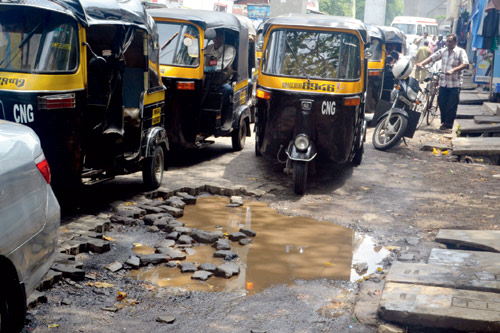Nineteen out of the 227 Greater Mumbai councillors did not ask a single question in any of the ward committee meetings in the calendar year January to December 2013 and seven councillors did not ask a single question over the entire term of two years, since they were elected reveals the White Paper report released by the Praja Foundation.
227 Councillors of Greater Mumbai elected in 2012 together asked merely 141 questions in the ward committee meetings, all related to roads, 34 questions related to drainage and 51 concerns related to solid waste management during the entire period of year 2013. The maximum number of questions asked i.e.; 147 by the elected representatives of Municipal Corporation of Greater Mumbai (MCGM) were related to renaming of roads says the report on working of ward committees in the city of Mumbai and civic problems registered by citizens (January 2012 to December 2013).
"Although civic issues may not come under the direct purview of Lok Sabha they are integral and crucial functions of democracy. Elections are fought on issues like roads, health, sanitation, education and crime. It is the responsibility of elected municipal councillors to address the civic needs of their constituents and ask questions that addresses their concerns in ward committee meetings of MCGM," says the report.
The White Paper reveals that road related complaint witnessed over 41 percent rise during the period January 2013-December 2013. Out of the top three types of complaints received by MCGM during January-December 2013, 42,287 complaints were related to roads, followed by 12,708 on drainage and 5519 on solid waste management. Only 44 percent of the total 65,913 civic complaints in the year 2013 could be addressed. No action has been taken by the corporation in case of 53 percent registered complaints in year 2013.
“10.3 percent increase in total complaints is primarily because of an advanced system to track potholes, which has in turn led to registration of complaints that were not being captured before mostly due to lack of an updated complaint redressal system. Complaints on ‘roads’ have increased by 41.1percent in the year 2013 from the previous year. The increase is primarily due to the new potholes complaint system developed by the corporation. Drainage complaints decreased by 21.5percent in the year 2013, while complaints related to water supply decreased by 2.3percent in 2013,” explained Milind Mhaske Project Director at Praja.
The councillor code is compulsory is to be rigorously filled by the concerned engineer while solving complaints and has to mention the name of the councillor (code) for each complaint pertaining to constituency. Only in 12 percent citizens’ complaint the councillor code was filled in.
Further the MCGM administration failed to answer 34 percent point of order questions asked by councillors. Point of order (PoO) questions are asked in ward committee meetings on crucial issues that might have suddenly cropped up. Of the 988 questions asked by councillors in year 2013, 752 (76 percent) are in the form of point of orders. Of the 752 PoO, the administration has answered 496 (66 percent) and 256 (34 percent) PoO are pending.
"Year after year, renaming of roads seems to be the uppermost agenda in the arsenal of municipal councillors to tackle civic problems of their constituents. Among the plethora of problems facing the city of Mumbai maximum number of questions asked by municipal councillors in the civic body have always been on renaming of roads when these representatives are elected to communicate the grievances of their constituents to the MCGM administration and ensure that the complaints are addressed," said Nitai Mehta founder trustee,Praja Foundation.
The White Paper report published by the Praja Foundation aims to provide factual information on various Issues concerning the Constituencies of the elected representatives including the Member of Parliament MP, The Member of Legislative Assembly MLA and Municipal Councilor). Praja Foundation has brought out two White Paper reports so far.

